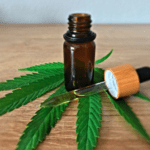There are substances that the body’s immune system considers a threat to your life. The implications may be benign, but a counter-reaction occurs because the system views them as a red flag to your safety. There are a plethora of allergies, but the seasonal type is the most prevalent.
Seasonal allergies, as the name suggests, are periodical. Some are more profound during the winter and others during the hot seasons. They are majorly caused by pollen, grass, or weeds.
Though there exist methods through which people allergic to these allergens can mitigate them, the experience is daunting and very inconvenient. In addition, it is not only expensive but also has severe effects on your body, like feeling drowsy.

However, to particulars, the irritation may be managed by using allergy shots or sublingual immunotherapy but to others, keeping away from the triggers is the sole remedy.
The human body is very sensitive, and if not taken care of, you may subject yourself to severe tribulations. Once in a while, it is crucial to visit an allergist for advice on managing situations, events like climate change, or factors that may irritate your skin.
How Then Do Seasonal Allergies Irritate the Skin?
Regular Rubbing Leads to Some Noticeable Skin Changes
Exposure to immune threats like pollen or grass makes you react to their itching. As a result, individuals end up scratching the skin thoroughly, giving it a reddish color. Additionally, the continuous rubbing makes the skin sag among the adults, making them look older than their actual age.
The irritation around the eye is so irking. The scrubbing, which is unavoidable around these sensitive areas, leaves marks that are shouting. Moreover, accentuation of the skin fold around the eye creates an additional line called the Dennie-Morgan fold, which is due to the rubbing that causes skin inflammation.
Dark Circles and Dark Eyes
Inhaling the floury pollens can lead to sinus congestion which causes the fluid to push into the veins. As a result, the delicate vessels around the thin skin of the eye swell and turn purple.
The patches around the eyes also turn black. Hence, contact with these allergens has a high chance of making your skin lose its natural skin pigment.
Long-Term Skin Sensitivity
People who work in flower farms, in plantations where grains are grown, are likely to inhale pollen or dust. These are possible allergens that can rock your regular routines as they cause a chain-like reaction to your immune system.
This reaction leads to the production of particular antibodies which stimulate chemicals like histamine in your bloodstream. Histamine has the impact of making your skin to be so sensitive, denying you the comfort you need to work in such a field.
Rashes on the Skin
Grass pollen allergy is prevalent. The natural structure of the grass is sharp with microscopic bristles, which may cause a rash upon coming into contact with your skin due to irritation. As a result, red bumps become evident on your skin, and itching may be severe or mild.
Damage to Skin Barriers Function
The skin is the largest organ in the human body and mainly consists of water for optimal functioning. However, it becomes weak upon exposure to external substances like pollens, which the immune systems consider a hazard.
Consequently, it is deprived of moisture, becoming dry, itchy, and irritating. As a result, you find yourself scratching your skin, and this may result in tiny wounds on your skin if the triggers are not managed.
Atopic Dermatitis
Atopic Dermatitis is a condition where certain external irritants like pollen and dust put the protective skin layer at risk. These allergens block the skin’s pores from releasing adequate moisture to the exterior part of the dermis. As a result, the skin becomes dry, resulting in cracks and rashes.
Hives
These are bumps that occur on the skins resulting from consistent scratching on the part that has been in contact with pollen, grass, or weed. The inflammation makes the skin lose its smoothness, and continuous scrubbing on this part can lead to the formation of wounds.
How Can You Protect Your Skin From These Allergens?
Overcoming the effects of seasonal allergies requires observation of certain safety precautions as per the below discussion.
Wear an Allergy Mask
When going around your flower garden or farm, you should put on a mask. It will prevent the allergens like pollens from entering your body through the mouth and the nose. However, knowing which mask suits the allergen you want to control is essential, as some masks are permeable and semi-permeable.
Mix Apple Cider Vinegar into Your Water
Consumption of apple cider vinegar impacts keeping your blood pressure in check due to its anti-inflammatory ingredients. Therefore, mixing a spoonful of it with warm water can deflate the swollen areas around your eyes, eliminating the additional skin layer out of persistent rubbing.
Keep a Record of Pollen Counts on Weather Apps
A clear record and track of pollen counts will let you know how much pollen is in the air. The number may change day by day, but it will enable your plan on when to go out and when to remain indoors.
Some weather apps will give you a forecast of even up to five days, and this will be of great importance to even regulate the outdoor movement of your allergic child.
Take Night Showers
The dust from the pollen or weeds easily sticks on your clothes and skin. It is easy to transfer them on your beddings and pillows, and if they do, you may inhale them at night, putting your life at a higher risk. As a result, ensure you make a habit of having a shower before sleep to eradicate the possibility of additional allergy triggers.
Join 25,000+ smart readers—don’t miss out!







